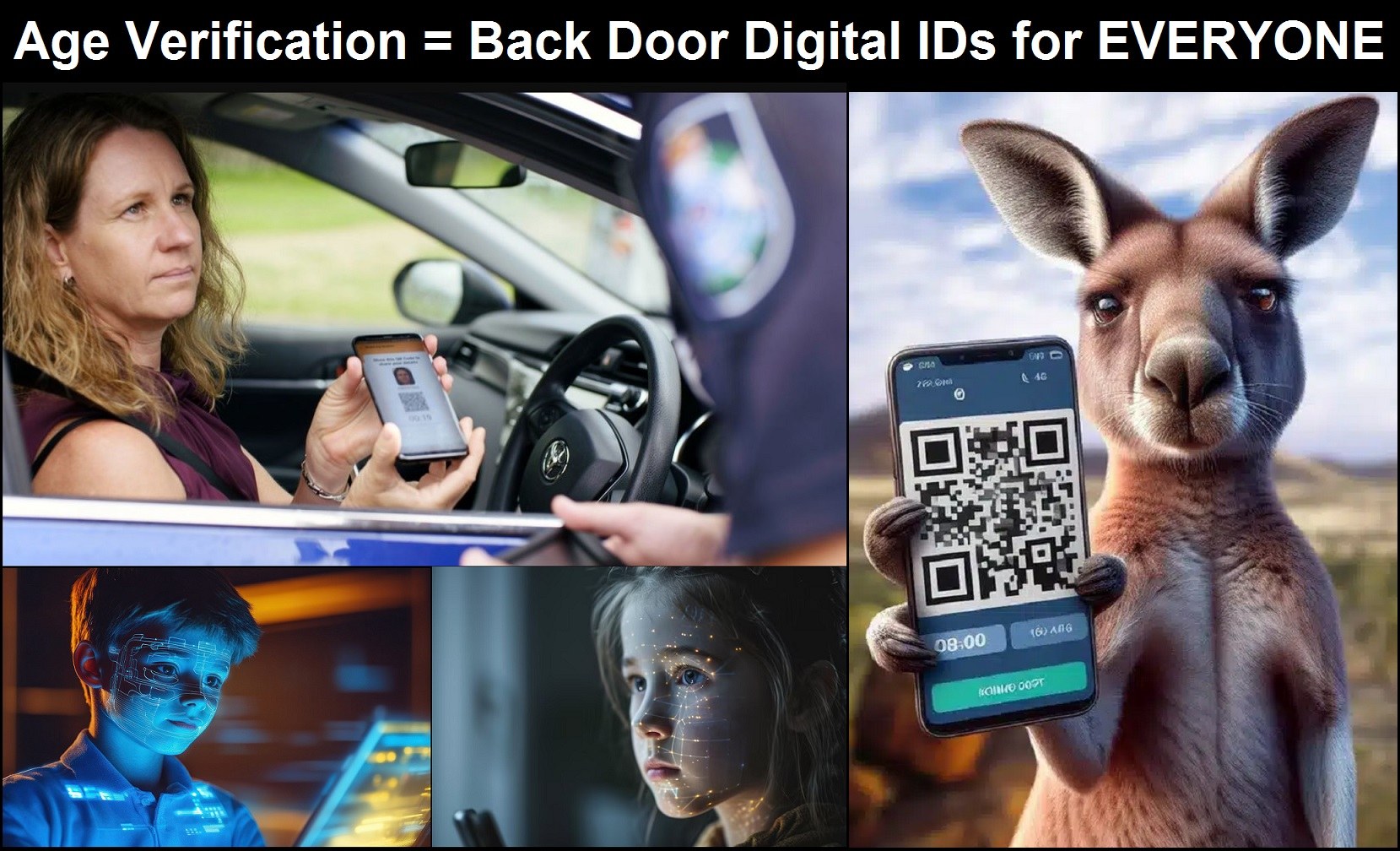by Brian Shilhavy, Health Impact News:

Last week, Australia became the first nation in the world to pass strict legislation prohibiting children under the age of 16 from using online social media.
The reaction from Big Tech was mostly negative, as the issue at hand that this legislation concerns is “age verification” software in order to comply with laws such as this.
While Australia is a small country when it comes to online social media users, most saw this as a “test case” and an issue that will soon spread to other countries as well.
TRUTH LIVES on at https://sgtreport.tv/
What Australia’s Social Media Kids Ban Means for Tech
While U.S. tech executives were tucking into their turkey on Thursday or guzzling Koia shakes, Australian lawmakers were approving a law that bans children under 16 from having a social media account.
Whoa! Australia is a relatively small country whose revenue contribution to Meta Platforms, Snap or TikTok is likely minuscule. But investors have to consider the possibility that the land Down Under is the canary in the coal mine of social media regulation.
After all, the Australian law is a more aggressive variation on laws passed by many U.S. states over the past couple of years, all aimed at protecting children from the worst of social media.
The U.S. state laws vary widely: some states, such as Tennessee, require social media firms to verify that parents consent to their children having an account. Age verification, to ensure social media firms know when a child holds an account, is becoming more common.
It’s hard to say whether these efforts have had much of an impact. Then again, tech industry lobby groups have sued to block implementation of many of these laws.
Tech companies are also trying to dodge responsibility for verifying who’s a kid and who’s an adult. Meta argues that the responsibility should sit with the mobile app store providers, Apple and Google. Apple says the opposite, as this Wall Street Journal report detailed.
But last week, The Washington Post reported that two Republican congresspeople were preparing a federal bill making the app stores responsible.
Social media firms aren’t ignoring the broader issue. Meta, for instance, recently made Instagram accounts for teens private by default, which should make it a bit harder for creepy adults to stalk kids. But given the pressure—including from mothers, as The Information recently reported—such efforts aren’t likely to be enough for social media’s critics.
To be sure, how exactly Australia plans to enforce the law is very unclear, particularly as it says social media companies can’t require state IDs as an age verification tool. If politicians are as worried about kids’ safety online as they claim to be, they wouldn’t make it difficult for social media firms to verify ages.
Tech companies have to prepare for the possibility that Australian-style bans could spread to other countries.
That would be particularly damaging for Snap, whose Snapchat app skews younger than those of other social media firms. But it wouldn’t be good for TikTok, Meta or even Reddit either.
If nothing else, the Australian law adds to a growing assembly of international regulations that threaten to mire tech firms in an ever expanding bureaucratic bog. While engineers are tech’s most valuable source of talent today, one day soon lawyers may take precedence. (Source.)
From the perspective of the consumer who uses social media, however, it became obvious that “age verification” requirements to access online services effectively mean that EVERYONE then will eventually have to prove their age, NOT just children.
A few Australian lawmakers clearly saw this, and warned the public that this was a back door way of rolling out government-issued national IDs to everyone in Australia.
Read More @ HealthImpactNews.com



